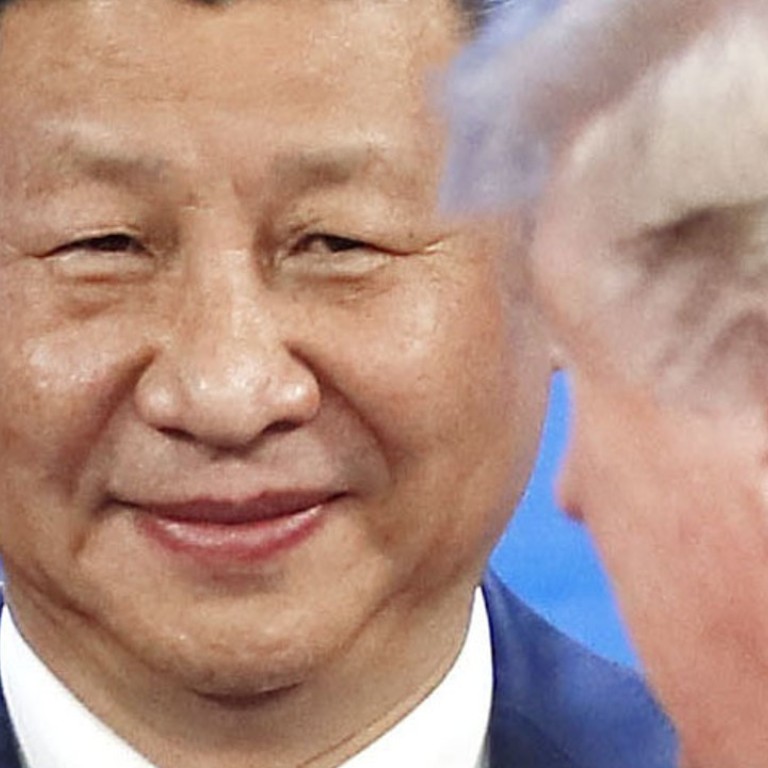
US-China trade war ‘truce’ should be used to find long-term solution to disputes, experts say
- Coming up with a framework for future dealings more important than spending trillions of dollars buying US goods, ex-commerce official says
- Most fruitful idea for China is to draw up promises that can be verified over a longer period, American academic says
Establishing a framework for future trade relations is more important than China simply promising to buy more US goods, according to a former senior Chinese official, but US business leaders said Beijing would not be allowed to drag its feet in coming up with a deal to please Washington.
At their meeting in Buenos Aires over the weekend, officials from the two countries agreed to a 90-day “truce” in their trade war. While the agreement includes a ban on any additional tariffs being imposed in the period, the White House remains adamant that Beijing must deliver on its demands for concessions on a range of issues, including forced technology transfers and cyber intrusions, and level the playing field for American businesses, once it expires.
What the US wants from China during the 90-day trade war truce
Wei Jianguo, a former Chinese vice-minister of commerce, said 90 days would not be sufficient to resolve all of the contentious trade issues, but would give Beijing enough time to draw up plans and proposals for the short, medium and long term.
“We can establish a framework based on the consensus reached between the two leaders,” he said. “This is very important, and more important than spending trillions of dollars buying US products.”
Derek Scissors, a resident scholar at the American Enterprise Institute, said the US would be seeking changes that went beyond trade issues when a delegation of about 30 Chinese officials visited Washington in the coming weeks as a follow-up to the meeting between Chinese President Xi Jinping and his US counterpart Donald Trump in Argentina.
“It’s difficult to imagine what China can do in 90 days,” Scissors said. “Even immediate purchases of commodities will barely touch the bilateral trade deficit in so short a time. More pledges of future changes to industrial policy and IP protection will not be believed.
US trade war weakens China’s position as global leader in automation and robot manufacture
“Perhaps the most fruitful idea is for China to make promises over 90 days which can be verified in a somewhat longer period, say 270 days,” he said.
“But the extension can’t be too long,” Scissors said. “The US presidential election campaign will start in late 2019 and President Trump will face damaging attacks if his supposedly great deal shows no concrete benefits. He will then go back to being ‘Tariff Man’.”
Washington said that if Beijing failed to deliver at the end of the 90-day period, which started on Saturday, it would push ahead with its threat to impose wider ranging tariffs on Chinese goods.
Despite the talks between Xi and Trump being declared a success by the two sides, an expert from a government think tank said the meeting once again highlighted the two sides’ disparate perceptions of the situation but added that 90 days was long enough to formulate an agreement on future actions as Beijing had already laid out its position when Vice-Premier Liu He travelled to the US in May.
Also, before Xi and Trump met in Buenos Aires, China presented a list of 142 items to the United States, reportedly detailing the steps it was and was not prepared to make.
“They didn’t manage to reach an agreement not because of technical issues, but because of the leaders’ lack of faith,” the source said. “[But] the two telephone calls between Xi and Trump as well as the meeting this time show they have the willingness to resolve the problems,” he said.
Shinzo Abe’s advice to Xi Jinping on talking tariffs with Donald Trump at their G20 trade war dinner
An American businessman, who asked not to be named, said Beijing had had a list of Washington’s demands for the past six months, and that the US wanted China to fully implement its commitments to make specific and measurable progress, such as granting licences to foreign firms, and being more transparent.
“But the problem is the US negotiators are concerned about the transparency of China’s system,” the person said. “When China makes commitments, they are difficult to verify, particularly on industrial policy.
“The trade deficit is no longer the top priority for the US administration,” he said. “The urgency now is about levelling the playing field, addressing the threat of [China’s] industrial policies on US companies’ competitiveness, and the potential to create overcapacity in emerging industries”.



